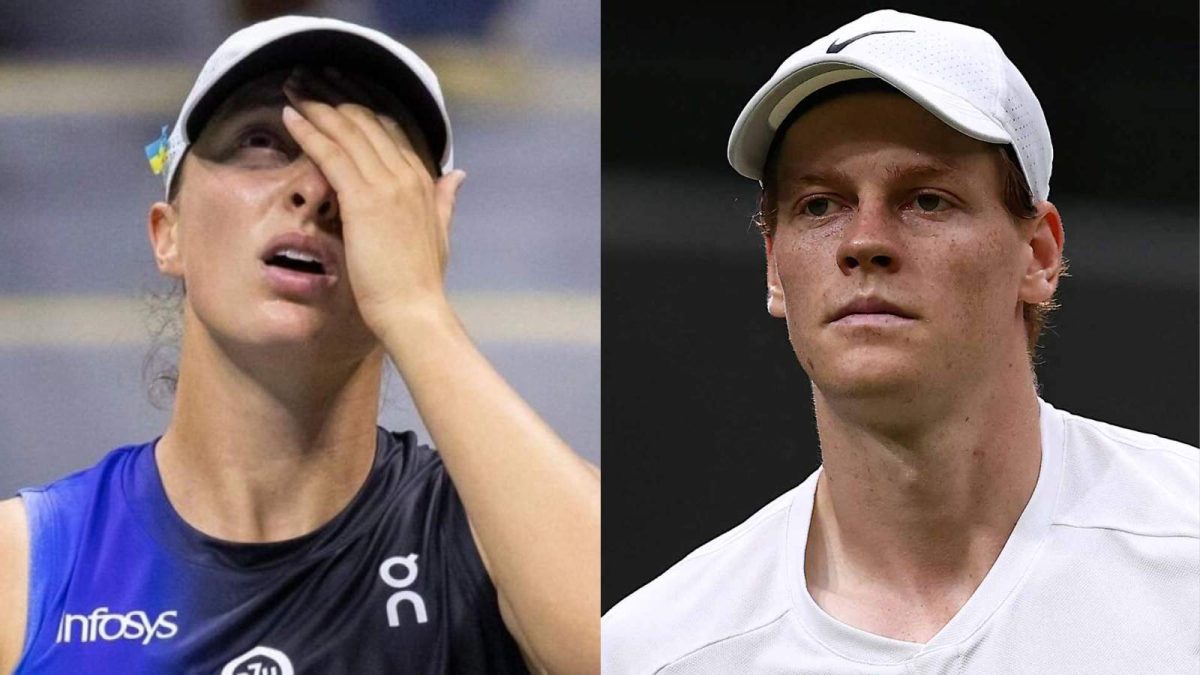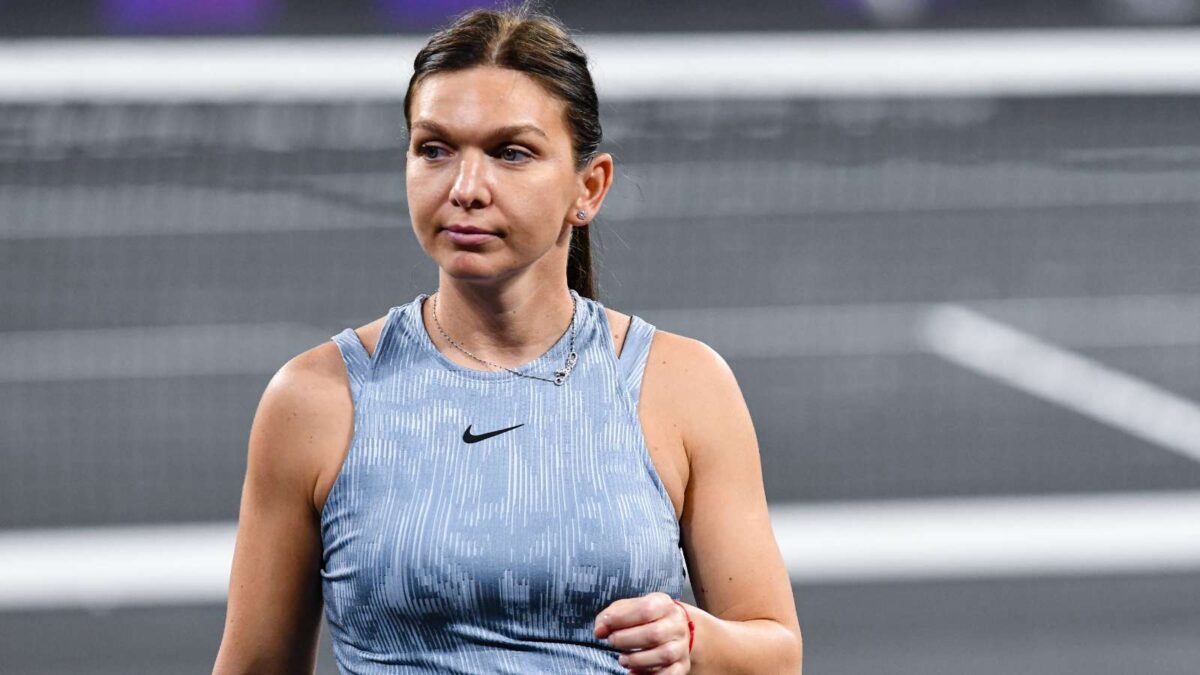Tennis has long been associated with grace, discipline, and the spirit of fair competition. However, in recent years, the credibility of the sport has been increasingly questioned due to a series of controversies, particularly around doping and governance.
In 2024, the tennis world was rocked by doping scandals involving two high-profile players, Jannik Sinner and Iga Swiatek. These incidents, coupled with past controversies such as Novak Djokovic‘s deportation saga in 2022, highlight inconsistencies in how tennis authorities handle breaches of rules.

This blog examines the uneven playing field of controversies in tennis through three lenses: the doping scandals of Swiatek and Sinner, historical precedent in tennis governance, and the contrasting treatment of Djokovic.
FS Video
Earlier this week, Iga Swiatek, the World No.2, was found to have tested positive for trimetazidine (TMZ), a banned heart medication. The Pole reportedly used TMZ to manage jetlag and expedite her recovery from the physically taxing tennis calendar.
While her supporters argue that the scheduling changes exacerbate player fatigue and push athletes to seek external aid, the use of an illegal substance is indisputably against the rules. Despite this, Swiatek’s punishment was relatively lenient, with a brief suspension and no significant disruption to her career.

Jannik Sinner‘s case, however, brought a different dimension to the fore. The Italian sensation tested positive for clostebol, a banned substance, during Indian Wells. Remarkably, the news began in August, months after the event and just after he triumphed at the Cincinnati Open. Rather than suspending him, tennis authorities opted to strip him of the prize money and ranking points earned at Indian Wells. This response raised eyebrows among fans and analysts alike.
Both incidents showcase how tennis authorities have shifted towards leniency, particularly when high-profile players are involved. The decision to allow Swiatek and Sinner to continue competing with minimal penalties starkly contrasts with historical precedents, raising questions about fairness and consistency.
The handling of Swiatek and Sinner’s cases becomes even more contentious compared to past doping violations in tennis. Take the example of Simona Halep, a former world No. 1 who was banned from competition after the 2022 US Open for testing positive for roxadustat, another prohibited substance. Unlike Swiatek or Sinner, Halep faced a significant suspension, sidelining her career for an extended period of four years.

Similarly, Maria Sharapova’s case in 2016 highlighted a stricter approach to doping enforcement. Sharapova tested positive for meldonium, a substance that had been legal until January 1, 2016. Despite her claim of ignorance regarding the rule change, Sharapova was handed a 15-month ban that substantially blew her reputation and career. In stark contrast, Swiatek and Sinner were found to have used illegal substances, yet they faced far less severe consequences.
The Novak Djokovic deportation saga in 2022 adds another layer of complexity to the discussion. Djokovic, a 20-time Grand Slam champion at the time, found himself at the center of a global controversy when he arrived in Australia for the Australian Open without a COVID-19 vaccination. Despite receiving initial clearance from Tennis Australia and the Victorian government, Djokovic’s visa was revoked upon arrival, triggering a media circus and legal battles.
The saga ended with the Serb being deported and handed a three-year ban from entering Australia, only for this decision to be overturned a year later. Remarkably, Djokovic’s ordeal had nothing to do with doping or any breach of tennis rules but stemmed from his stance on vaccination. Many athletes across different sports shared this stance at the time. Yet, Djokovic faced harsher consequences than Swiatek and Sinner, who had violated clear anti-doping regulations.
The stark contrast in how Djokovic was treated compared to Swiatek and Sinner underscores a troubling inconsistency in tennis governance. The Serb’s situation revolved around a broader societal issue, the pandemic, whereas Swiatek and Sinner’s cases involved violations of the sport’s core ethical and regulatory framework. Despite this, Djokovic endured greater scrutiny and harsher penalties, exposing a double standard in how tennis authorities handle controversies.
The controversies surrounding Swiatek, Sinner, and Djokovic illustrate a deeper issue within tennis: the lack of a consistent and transparent framework for addressing breaches of rules and ethical standards. The sport’s credibility depends on its ability to apply its regulations uniformly, regardless of a player’s status or the commercial implications of a decision.
Tennis governing bodies must prioritize transparency in their decision-making processes. The delayed disclosure of Sinner’s positive test and the ambiguous reasoning behind Swiatek’s lenient punishment erode public trust in the sport. Clear, timely communication of violations and the rationale for penalties is essential to restoring faith in the system.
Swiatek’s case also highlights the need for structural changes to the tennis calendar. The extended Masters 1000 events and limited off-season have placed immense physical and mental strain on players, pushing some to seek questionable solutions. A more balanced schedule that allows for adequate rest and recovery could mitigate such issues and foster a healthier competitive environment.
Most importantly, tennis authorities must adopt a consistent approach to rule enforcement. Cases like those of Halep and Sharapova demonstrate that strict penalties have been applied in the past, even for less egregious violations. Swiatek and Sinner should not be exceptions to the rule. A fair and predictable system is crucial to maintaining the integrity of the sport.
The 2024 tennis season was historic for so many reasons. Sinner had a season of his life, winning two Grand Slam titles, the ATP Finals, and becoming World No.1. On the other hand, Aryna Sabalenka showcased her prowess by ascending to the top of the rankings again. Moreover, Djokovic completed his trophy cabinet by winning the elusive Olympic singles Gold medal in Paris. However, to see that the headlines in the tennis world is dominated by these off-the-court issues is depressing, to say the least.
To preserve its credibility and uphold the principles of fair competition, tennis must commit to greater transparency, address structural issues like scheduling, and enforce its rules consistently. The sport can only regain the trust of players, fans, and stakeholders by tackling these challenges head-on.





